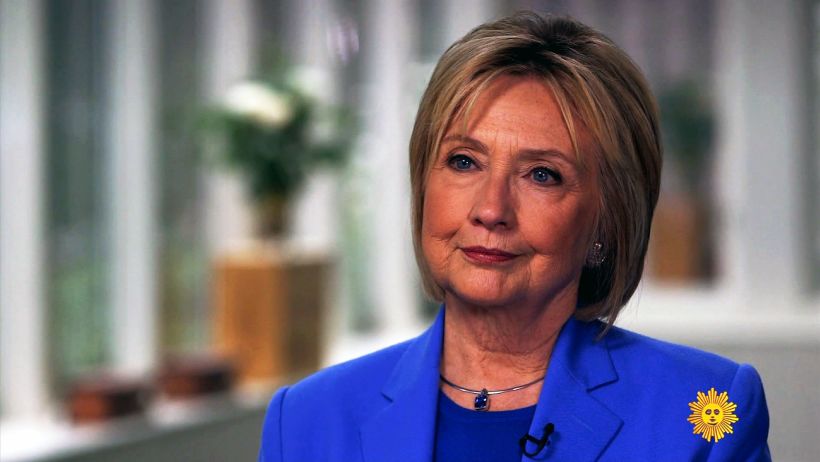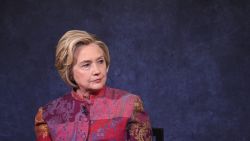Story highlights
Hillary Clinton has split with President Barack Obama on deportations, Syria, Obamacare's 'Cadillac tax,' the Keystone pipeline and trade
Clinton's differences have become increasingly apparent in recent weeks
Hillary Clinton insists on the campaign trail that she’s her own woman – and in recent weeks, she’s really tried to prove it.
In a huge blow to President Barack Obama’s trade agenda, the Democratic front-runner now says she opposes the 12-nation Trans-Pacific Partnership, a massive trade deal she once helped negotiate as secretary of state. But that’s not all. Clinton has broken from her vocal support of several of Obama’s policies on several high-profile issues in recent weeks – including immigration, Syria and the Keystone pipeline.
Here’s a look at five major issues on which the two Democratic leaders have differences:
1. Trans-Pacific Partnership
Clinton has a long history with free trade. After all, it was her husband, President Bill Clinton, who signed the first regional mega-deal: the North American Free Trade Agreement. And Clinton herself as secretary of state helped get the ball rolling in negotiations over the 12-country Trans-Pacific Partnership – once calling it the “gold standard” of trade pacts.
But she delivered a major blow to the deal on Wednesday, announcing her opposition to it just two days after Obama’s top trade negotiator announced that the United States has, after years of negotiations, reached an agreement.
“As of today, I am not in favor of what I have learned about it,” Clinton told PBS on Wednesday. “I don’t believe it’s going to meet the high bar I have set.”
RELATED: 45 times Clinton pushed the trade bill she now opposes
As a presidential candidate, she had previously criticized two of its elements. She’s called for more of a focus on currency manipulation, which is being addressed on the sidelines of the Trans-Pacific Partnership. And she has joined Sen. Elizabeth Warren, D-Massachusetts, in criticizing the deal’s inclusion of a mechanism that allows companies to challenge whether countries’ laws and regulations live up to their international trade commitments. But that, too, was the subject of last-minute changes designed to appease liberal critics.
2. Deportations
Obama’s administration has aggressively enforced immigration laws, ramping up deportations in an effort to immunize the White House from being accused of lax security efforts as it worked with Congress to pass immigration reform (an effort which failed). Deportations reached an all-time high of 438,421 in 2013.
Clinton has previously said Obama has little choice but to enforce the laws on the books. But in an interview with Telemundo on Monday, she said it’s time for a different approach.
Asked if she thinks Obama has done everything within his executive power to improve the current immigration system, Clinton cited the President’s increased enforcement of deportation laws as a mistake.
RELATED: Clinton faults Obama for strict deportation
“The deportation laws were interpreted and enforced very aggressively during the last six and a half years, which I think his administration did in part to try to get Republicans to support comprehensive immigration reform,” Clinton said. “It was part of a strategy. I think that strategy is no longer workable.”
She added: “I’m not going to be breaking up families. And I think that is one of the differences. I totally understand why the Obama administration felt as though they did what they did under the circumstances. But I think we’ve learned that the Republicans, at least the current crop, are just not acting in good faith.”
Clinton has supported Obama’s executive actions to forestall deportations for so-called “Dreamers” – undocumented immigrants who were brought to the United States as children – as well as the undocumented parents of U.S. citizens. She’s promised to expand on those actions.
3. Syria
Clinton has also cast herself as an independent voice from Obama in Syria.
In her book “Hard Choices,” she wrote that as secretary of state, she urged the President to arm Syrian rebels – much earlier than he ultimately did.
RELATED: Obama subtly pushes back against Clinton, Panetta on Syria
Clinton has prodded the administration to allow more Syrian refugees into the United States, too, pinning her goal at 65,000 – many more than the 10,000 the White House is currently making plans to accommodate.
And most recently, Clinton has called for a no-fly zone in Syria – which Obama opposes. It’s a split not just with Obama, but with Vermont Sen. Bernie Sanders, who has complained that a no-fly zone could lead to the United States becoming further enmeshed in the conflict there.
Obama dinged Clinton for her position in a news conference last week.
“Hillary Clinton is not half-baked in terms of her approach to these problems,” he said. “But I also think that there’s a difference between running for president and being president.”
RELATED: In contrast to Clinton, Sanders opposes no-fly zone in Syria
4. Cadillac tax
Clinton has broadly promised to protect and even expand on Obama’s signature health care law. But there’s at least one element she wants to roll back: the so-called “Cadillac tax” on premium insurance plans.
The tax was designed to hit those who can best afford it, helping pay for the law’s expansion of Medicaid and subsidies for lower-income insurance buyers. Obama’s White House has consistently supported it, saying that it’s necessary to keep down the cost of the law.
But labor unions have blasted it, calling it a thorn in the side as they attempt to negotiate more favorable health insurance plans for workers at school districts, governments and companies.
RELATED: Hillary Clinton: End Obamacare tax on top health plans
“I have proposed new reforms to build on the progress we’ve made and lower out-of-pocket costs for families,” said Clinton in a statement issued September 29. “That’s why, among other steps, I encourage Congress to repeal the so-called Cadillac tax, which applies to some employer-based health plans, and to fully pay for the cost of repeal.”
Another issue to watch: Whether Clinton will break with Obama on the law’s medical device tax.
5. Keystone
Clinton was at the helm of the State Department when it began a years-long environmental review of the Keystone XL pipeline. That review still isn’t finished – and for months, she deflected questions about her position on whether the pipeline should move forward or not, saying she wants her old agency to finish its work first. It’s the same posture the White House has taken – Obama has yet to rule on the 1,179-mile Canada-to-Texas pipeline.
But in September, Clinton finally ran out of patience – with the process, and with the political hits she was taking for ducking the issue.
Liberals have long opposed the pipeline, blocking attempts by congressional Republicans to override the State Department and green-light the project. Sanders and O’Malley were highlighting Clinton’s refusal to take a position as evidence that they better suited the party’s base. Last month, she announced her opposition to the pipeline.
RELATED: Hillary Clinton opposes Keystone XL pipeline
“I think it is imperative that we look at the Keystone pipeline as what I believe it is – a distraction from important work we have to do on climate change,” Clinton told a community forum in Des Moines, Iowa. “And unfortunately from my perspective, one that interferes with our ability to move forward with all the other issues. Therefore, I oppose it.”
It wasn’t just a change of rhetoric for a presidential candidate. Her opposition was also a reversal for Clinton herself, who had said in 2010 as secretary of state that she was “inclined” to approve the pipeline.

















